Twins Research Australia (TRA) is a national twin research centre and comprises a rich resource of data, collaborative networks and twins available for research. TRA has:
- one of the largest volunteer twin research registers in the world, with over 35,000 pairs of twins
- data available for a sub-set of the registry
- 40+ years experience and expertise in supporting twin studies
Access to the twin registry and other TRA services is open to all researchers. Find out more below.
Sign up for our Researcher eNews here.
Why twin research?
Research with twins has the potential to contribute transformative insights to our understanding of health and disease for us all. Specifically, twin research can play an important role in understanding the interplay between genes and environment. By studying the differences and similarities between and within twin pairs, crucial insights into complex diseases have been discovered.
Research with twins can:
- Estimate the impacts of genetic and environmental factors on why people differ in health and disease
- Perfectly control for age and gender with a shared rearing environment.
- Investigate discordance in disease or environment with a matching control; co-twin control study.
- By naturally matching on variables such as age, gender and environment, twin studies can more readily identify the causes of diseases and health
- Facilitate projects involving gender and disease with opposite sex pairs
- Analyse issues relevant specifically to twins.
- Provide a powerful model for epigenetic studies
How to work with us
Researchers wishing to include twins and/or twin data in their research can apply to access existing de-identified data, contact twin pairs to collect new data or a combination of both.
The relationship with TRA and external research projects is intended to be a collaborative one. Research teams working with TRA have access to expertise in development of recruitment strategies, setting up the recruitment phase of a project, and roll-out and management of participant recruitment. In addition, advice or assistance with grant applications, ethics applications, data management, and analysis are available on request.
All aspects of the TRA/Researcher relationship are outlined in the Working with TRA Guidelines It is recommended that you familiarise yourself with this document prior to completing an application.
Applying for Access
If you are interested in working with us the first step is to submit an Expression of Interest to the Research Coordinator and Liaison, Jessica Tyler at info@twins.org.au. This step enables TRA to assess the suitability of the research proposal and check approved projects for duplication and overlap.
The second stage of the application is the submission of a Full Application for review. The purpose of the review is to ensure projects are a) of significant scientific merit; b) an appropriate use of a twin design; and c) described so that potential participants are able to provide informed consent.
A flowchart outlining an overview of the Application Process is available for download.
Additional requirements
Before final approval is granted:
- Human Research Ethics Approval must be in place.
- For recruitment of twin participants: A Services and Access Agreement needs to be signed and lodged with University of Melbourne.
- For access to de-identified data: A De-Identified Data Transfer Agreement needs to be signed and lodged with the University of Melbourne.
Important note: all recruitment documentation, including the Participant Information Sheet and Participant Consent Form must be developed in conjunction with Research Coordinator and Liaison prior to submission for ethics approval. Please view example recruitment documentation in the sections below.
Costs are associated with TRA services, please contact Jessica Tyler for a customised estimate.
Ongoing requirements
All researchers collaborating with TRA have an ongoing responsibility to update the registry with changes to participant contact details and zygosity information. In addition a clean copy of the dataset must be lodged with TRA at the completion of the study or at a time negotiated between the two parties.
Use of TRA must be acknowledged in all publications and presentations. We request the following wording be used:
“This research was facilitated through access to Twins Research Australia, a national resource administered by the University of Melbourne. Supported by the National Health and Medical Research Council since 1981.”
Please direct all queries and/or requests to Jessica Tyler. Phone and face-to-face meetings are also available if researchers wish to discuss their proposals.
Working with TRA documents
Example approach documents
All recruitment documentation for TRA facilitated research projects, including the project PLS/PICF, must be developed in conjunction with Research Liaison and Study Coordinator prior to submission for ethics approval.
TRA has a standard approach package for the recruitment of new participants to a project which can be sent through the post or via email.
An email approach usually contains:
- The email with a brief summary of the project.
- A detailed Information Sheet (aka a Plain langue Statement or PLS) outlining the study and the steps involved in participation, written by the researcher in collaboration with TRA.
- An online TRA Response Form to record the Registry member’s interest in participating, and consent for contact details to be forwarded to the researcher (provided by TRA).
When creating these documents it is important to put a compelling case as to why the study is important and why twins can provide greater insights. TRA members get excited about studies that they can see and understand the value of.

